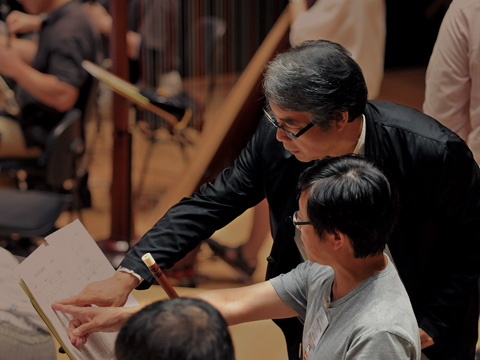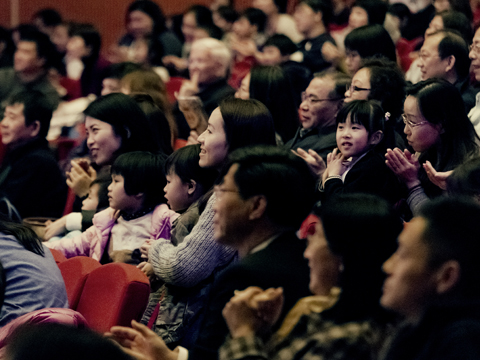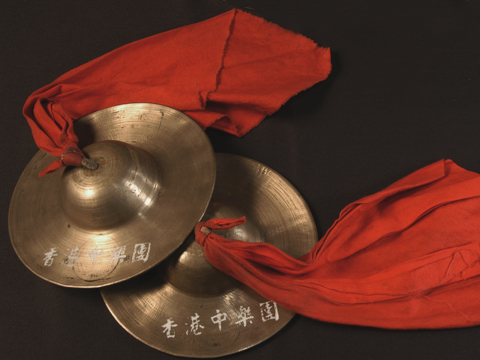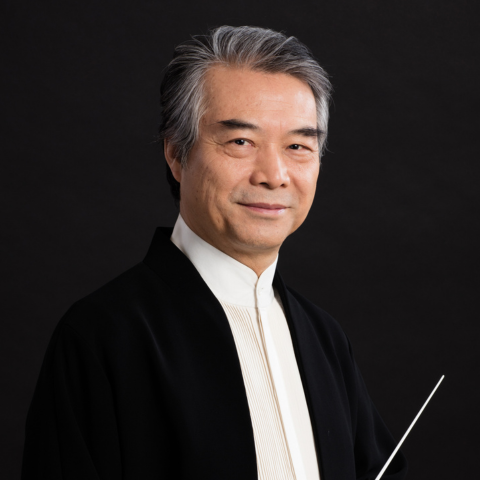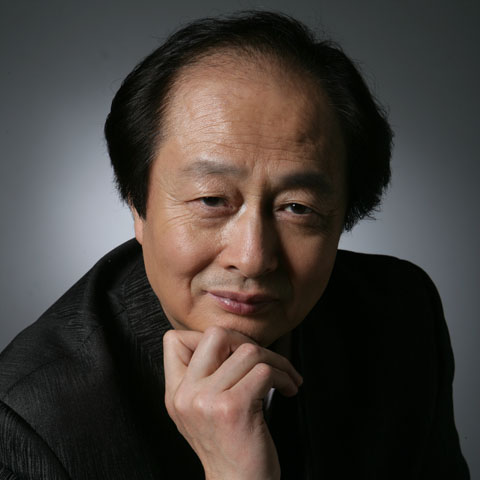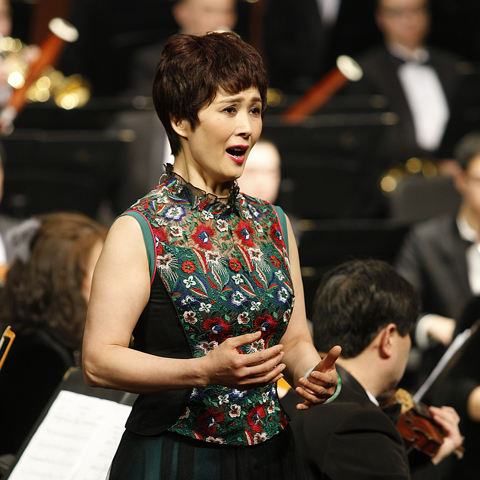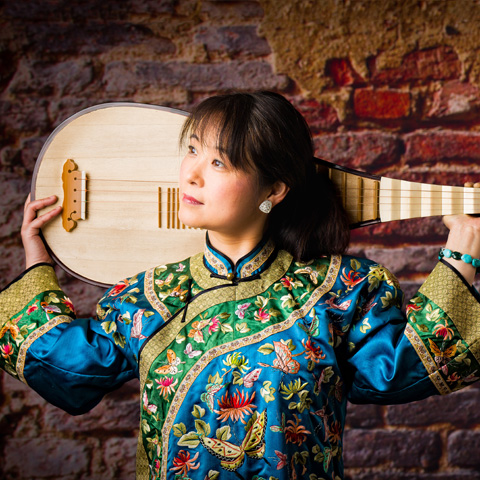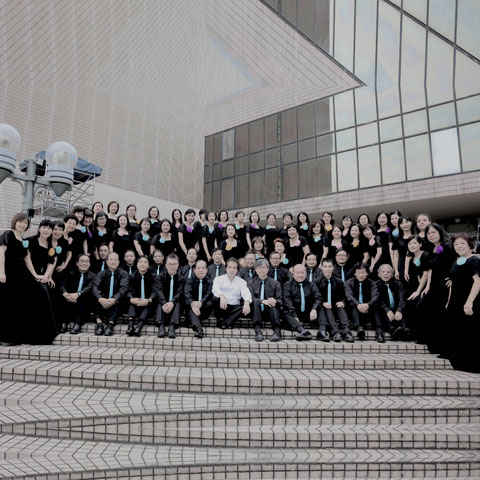
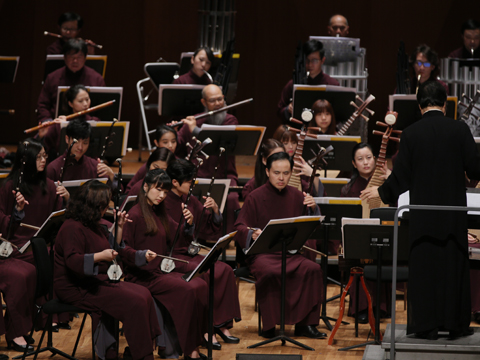
HKCO
Hong Kong Chinese Orchestra Environmental, Social and Governance Artistic Director and Principal Conductor for Life Orchestra Members Council Advisors & Artistic Advisors Council Members Management Team Vacancy Contact Us (Tel: 3185 1600)

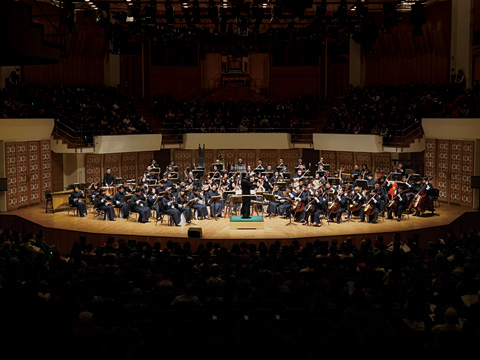
Concerts

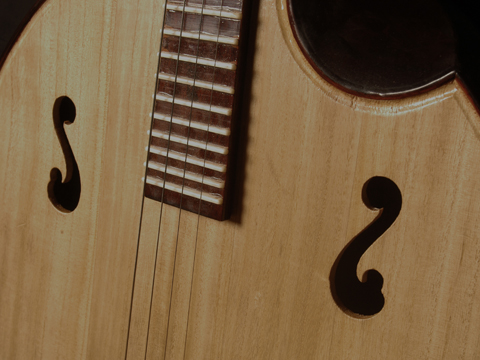
Education
The HKCO Orchestral Academy Hong Kong Youth Zheng Ensemble Hong Kong Young Chinese Orchestra Music Courses Chinese Music Conducting 賽馬會中國音樂教育及推廣計劃 Chinese Music Talent Training Scheme HKJC Chinese Music 360 The International Drum Graded Exam

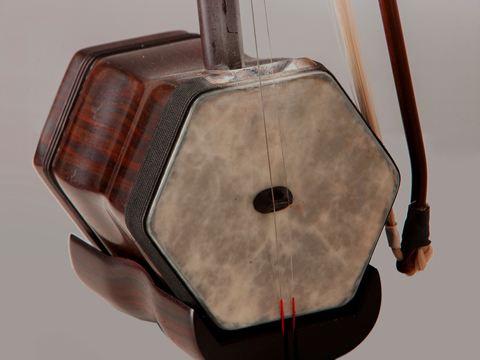
Instrument R&D
Eco-Huqins Chinese Instruments Standard Orchestra Instrument Range Chart and Page Format of the Full Score Configuration of the Orchestra
42nd Orchestral Season
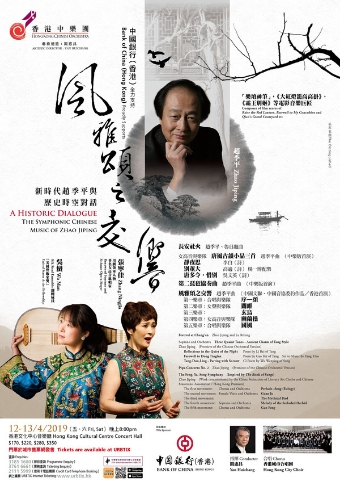
A Historic Dialogue - The Symphonic Chinese Music of Zhao Jiping
Bank of China (Hong Kong) Proudly Supports
The Distinguished
8:00 pm
Soprano: Zhang Ningjia
Pipa: Wu Man
Chorus: Hong Kong City Choir
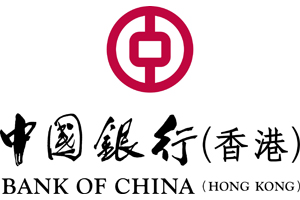
Festival at Chang'an Zhao Jiping and Lu Rirong
Soprano and Orchestra Three Quaint Tunes - Ancient Charm of Tang Style Zhao Jiping (Premiere of the Chinese Orchestral Version)
Reflections in the Quiet of the Night Poem by Li Bai of Tang
Farewell to Dong Tinglan Poem by Gao Shi of Tang Set to Music by Yang Yibo
Tang-Duo-Ling - Parting with Sorrow Ci Poem by Wu Wenying of Song Orch. by Alfred Wong
Soprano: Zhang Ningjia
Pipa Concerto No. 2 Zhao Jiping (Premiere of the Chinese Orchestral Version)
Pipa: Wu Man
The Feng, Ya, Song Symphony (Inspired by The Book of Songs) Zhao Jiping (Work commissioned by the China Federation of Literary Art Circles and Chinese Musicians' Association / Hong Kong Premiere)
The first movement: Chorus and Orchestra Prelude – Song (Eulogy)
Chorus: Hong Kong City Choir
The second movement: Female Voice and Orchestra Guan Ju
Vocal: Zhang Ningjia
The third movement: The Mythical Bird
The fourth movement: Soprano and Orchestra Melody of the Secluded Orchid
Soprano: Zhang Ningjia
The fifth movement: Chorus and Orchestra Guo Feng
Chorus: Hong Kong City Choir
Time: 7pm
Venue: Hong Kong Cultural Centre Concert Hall
Free Admission. Quota is limited. First come first served.
Reservation:3185 1647
Zhao Jiping’s Music – A Dialogue with History
Chow Fan-fu
In 1996, at the recommendation of the internationally renowned Japanese composer, Takemitsu Toru, Zhao Jiping was invited to attend the second International Film Music Festival in Switzerland – he was the only Asian musician being invited at that gala event. From then on, within a short span of a decade or more, Zhao had written about fifty film scores, with more than twenty of which award-winners at film festivals in China and abroad. It can therefore be said that Zhao introduced Chinese music to the world, and let the world know China through music. The Chinese motion pictures for which he wrote the scores had also become internationally recognized works of excellence, such as Yellow Earth, Red Sorghum, The Story of Ju Dou, Raise the Red Lantern, and Farewell, My Concubine.
But in this concert described as ‘a dialogue with history’, Zhao has picked none of his film and television music scores. Instead, he chose a festive, joyous piece that he co-wrote with his longtime friend in Xi’an, Lu Rirong, as the opening number: Festival at Chang’an, which was inspired by the Qinqiang music of Shaanxi (‘Qin’ is the abbreviated name of the Shaanxi province, and ‘qiang’ is ‘vocal style’.). It is followed by Three Quaint Tunes - Ancient Charm of Tang Style, featuring vocals by soprano Zhang Ningjia and instrumentals by the HKCO. In it, Zhao has picked three poems of the Tang and Song period (circa 7th to 13th centuries) and set them to music as his fervent paean to our forefathers. Ending the first half of the concert programme is Pipa Concerto No. 2 by Wu Man. She will be performing pipa solo and sharing the stage with the Hong Kong Chinese Orchestra. The work was inspired by the pingtan narrative singing of Suzhou. Returning from the intermission would be a new work of great dimensions by Zhao Jiping, The Feng, Ya, Song Symphony. The five movements employ not only a soprano but also a chorus. The lyrics are taken from the oldest book of verses in China, Shi Jing (The Book of Songs) and Tang poems. It is a musical homage to traditional Chinese culture and outstanding traditional Chinese culture.
Humanism manifested in everyday life and from the ordinary folks
These musical dialogues between Zhao and history can be said to be the composer’s gleanings from a life steeped in Chinese traditional culture and on China’s soil. After graduating from the Xi’an Conservatory of Music, Zhao was assigned to the Shaanxi Opera Research Institute, where he stayed for twenty-one years before he was transferred to the Song and Dance Troupe of Shaanxi, serving as director. He has this to say about that part of his personal history: “I had an amazing time during my twenty-one years there, building a repository of music with both hands. By that I mean, on the one hand, I immersed in the life there, listening to the vernacular sounds of local music. On the other, I learned and assimilated foreign techniques. It was not easy, but it was necessary.”
Another important part of Zhao’s creative life is taking field trips. He has this observation: “When you are on location, you need to prick up your ears, and have your senses all ready to work. Some things can escape your eyes, but if you have your senses open, the mundane can turn into magic. That’s the key to going on field trips. Some can return from a trip like this and still cannot be inspired to write anything. That has to do with sensitivity to one’s surroundings.”
Perpetuating his father’s legacy in art and borrowing from the West
Zhao, on the other hand, also likes Western music, and takes an academic interest to it. He said, “Even today, whenever I have some free time, I would analyze the classics of the world. I find the composers of France, the U.K., Russia and Germany truly admirable with the gift they showed in their compositions – I have to say ‘hats off to them’. … I would study the scores of great maestros in China and other parts of the world and explore the musical idioms and compositional techniques they used. If you want to talk about my state of creativity today, you can say I have one hand on our traditions as I try to learn folk art, and the other stretched out to the world to glean from their brilliant examples.”
Yet among the elements that have shaped Zhao’s music as dialogues with history, his father’s influence come top. His father, Zhao Wangyun, was a famous Chinese painter and founder of the Chang’an stylistic school of painting. He pursued art with a religiousness that had been his driving force from within – he loved his motherland, his country, his nation, his art. Be they good times or bad, he could staunchly go forward, regardless, and with no regrets. “Such an aesthetic outlook and such values had a tremendous influence on me, his son,” Zhao Jiping said, “My father’s artistic concept about art has found a continuum in my music.”
The sum total of his life and his dialogue with his mother tongue
Zhao has always reiterated that his wants to use his music like his “mother tongue” in communicating with the world. In this new age, his music of this category exemplifies this faith. He wants his music to be accessible to the everyman, yet at the same time with an academic richness within, and it must be passed on to future generations. It is his road taken, and he would not change. He said, “No matter how hot other things are becoming, I don’t care. I just keep to mine.” “Towards that end, we as a generation with tradition in our blood in this new age, are charged with the mission to make our works abreast of the times. Then what should be in my music? I should say Great Love. After all, the ultimate wish of humankind is peace on earth.
* Zhao’s quotes used in this article are taken from Zhongguo Yishu Bao, issue December 2018.
Your Support
Friends of HKCO
Copyright © 2026 HKCO
